Mental health issues have been near and dear to my heart for many years. I’ve been working in the mental health field in one form or another since the age of 19. I started out at a domestic violence shelter advocating for victims of assault and have worked in many other areas of mental health since that time. I earned my Bachelor’s, Master’s, and then Ph.D. in psychology and have been practicing as a psychologist since 2005.
I’ve seen mental health issues become less stigmatized through the years. However, there continue to be many misconceptions of what anxiety, depression, and other mental health struggles entail. Many people even still believe that mental health struggles are a sign of failure, and this is definitely not so.
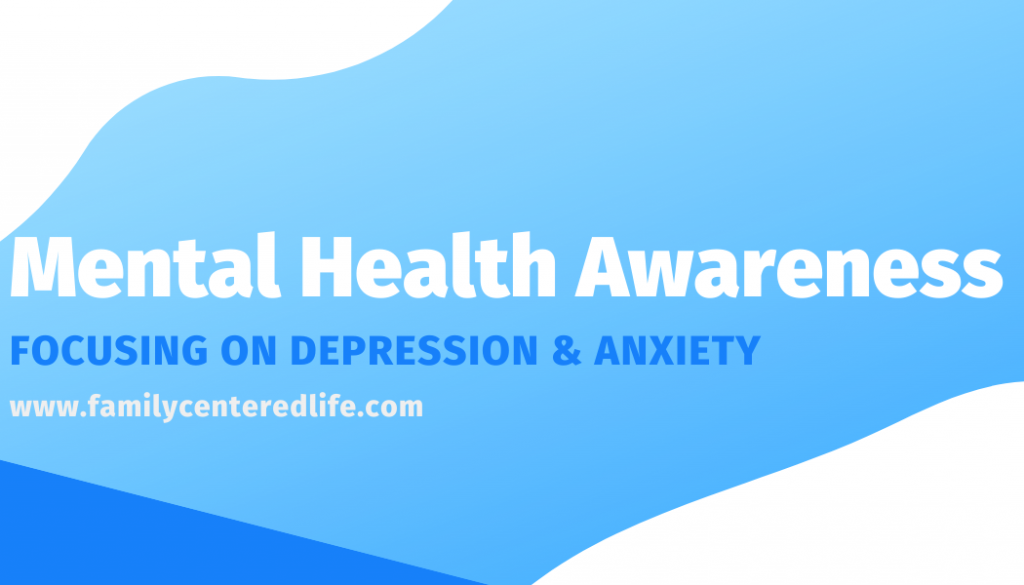
Depression and anxiety tend to be the most common mental health diagnoses discussed and dealt with by people of all backgrounds.

What are Depression and Anxiety?
The National Institute of Mental Health (NIMH) says “Depression is one of the most common mental disorders in the U.S. Current research suggests that depression is caused by a combination of genetic, biological, environmental, and psychological factors.” The NIMH also discussed that there are many different types of depression, including Major Depressive Disorder, post-partum depression, and bipolar depression. Symptoms can include sadness, little interest in activities you used to enjoy, hopelessness, worthlessness, and lethargy.
The National Institute of Mental Health (NIMH) explains that Anxiety is common in some form in most people’s lives. However, anxiety can turn into a mental health disorder, such as Generalized Anxiety Disorder or Panic Disorder. Symptoms can include: worry, irritability, muscle tension, panic attacks, trouble sleeping, and physical symptoms of anxiety, such as stomach aches, diarrhea, or headaches.

What Causes Depression and Anxiety?
There are several possible causes for clinically significant anxiety and depression. Here are some of those possibilities.

Genetics
Depression and anxiety have been linked to genetic factors. Thus, if you have a relative with depression or anxiety you are likely to be at a higher risk for these symptoms than others who do not have these hereditary factors.

Situational Factors
Situational factors can also lead to experiencing depressive and anxiety symptoms. Situational factors can include major changes (new job, college graduation, etc…), relationship break-ups, major relationship problems, financial distress, or any other major life events.
One of the leading issues related to developing depression and anxiety is stress. Stress can occur due to constant worry or it can be a symptom of the situational factors listed above. Stress can cause a person to experience symptoms of depression and anxiety. Stress can also cause already present symptoms of depression and anxiety to intensify in frequency and duration.
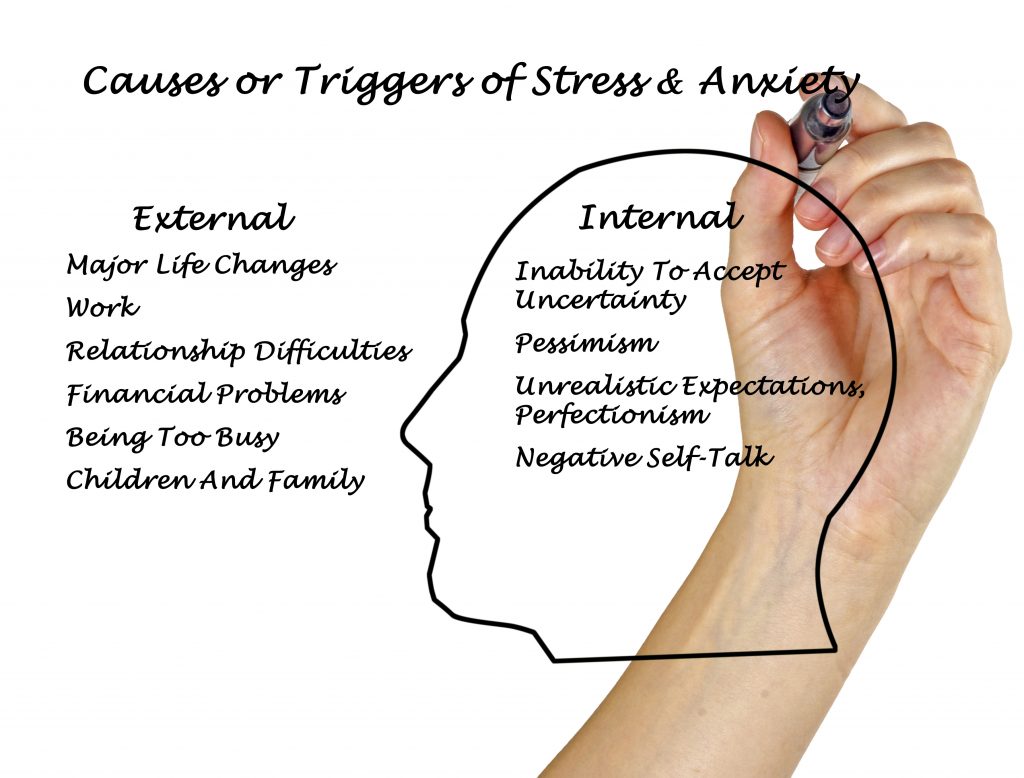

Negative Thought Patterns
Pessimistic self-talk and negative thought patterns can also lead to clinically significant symptoms of anxiety and depression. Negative thought patterns are just that, the continual cycle of negative thoughts about ourselves and our lives that often send us into negative downward spirals.
Negative thought patterns are often that nagging, negative voice in your head. You’re not good enough. No one will ever love you. You are a fake. You are ugly. No one cares about you. You are stupid. And on….and on….and on……
These can often be the most difficult precursors of anxiety and depression to handle because they are internal. A situational factor, such as starting a new job, can lessen when you become comfortable with the new coworkers and new job tasks. However, internal factors often cannot be as easily targeted and improved since they are not concrete circumstances.

Treatment Basics
Since we can’t control our genetics, we need to focus on what we can control.

We can control what we put into our bodies.
We are able to control what we put into our bodies.
We can control what we eat. We can choose to eat healthy foods that make us feel better and that are better for our bodies.
We can choose to drink more water to make sure we are appropriately hydrated.
We can add more positivity to our lives by surrounding ourselves with positive people who support us and care about us.
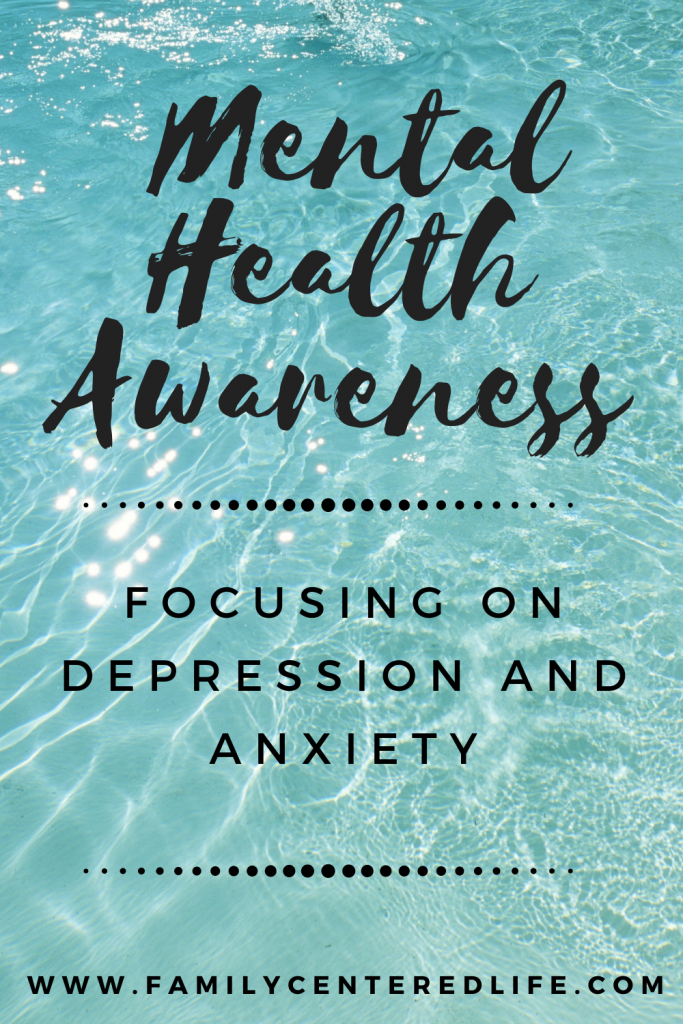

We can (often) control what we expose ourselves to.
We can control what we expose ourselves to.
We can leave relationships that are verbally or physically abusive, even if this means it’s necessary to seek the help of others or professional agencies.
We can delegate responsibilities that are too much or too many for us to handle.
We can listen to happier music and music we enjoy.
We can spend time doing the activities we enjoy.

We can control the decisions we make.
We can decrease our stress by taking control of the decision we make.
We must differentiate between wants and needs, focusing on our needs. This allows us to set priorities and focus on what is important in life.
We can choose to make good financial decisions, so we are less stressed about our financial stability.
We can choose to put healthy things in our bodies.
We can choose to be around positive people.
We can choose to take care of our physical and mental health needs.


Specific Types of Treatments
Everyone experiences symptoms of depression and anxiety at times in their lives. However, when those episodes are severe, intense, and/or frequent, it is likely to be beneficial to look into treatment options.

Medication Management
Medication can help your body better manage brain chemicals (ex. serotonin) that can lead to depressive and anxious symptoms. Medication can help brain chemicals work the way they are intended to work. This is especially important when depression has a hereditary component because it is likely that genetically passed on brain chemistry is a cause, or at least a factor, in your depressive or anxious symptoms.
Psychiatrists can prescribe medication for depressive and anxious symptoms. Primary Care Physicians can also prescribe medication for depressive and anxious symptoms, but not all choose to do so because they would prefer a psychiatrist to do this since a psychiatrist specializes in mental health issues.

Therapy
Cognitive-Behavioral Therapy (CBT) is often the most appropriate therapy to help alleviate depressive and anxious symptoms. CBT is a type of therapy provided by mental health workers, such as psychologists or counselors. This type of therapy allows you to work through your negative thought patterns and other internal struggles (the cognitive aspect) while also making concrete changes in your life and life choices (the behavioral aspect).
Here is an example of what you can expect if you are attending your first appointment with a psychologist or therapist.

Combination of both therapy and medication
Often, it is best to use a combination of medication and therapy to improve your symptoms of depression and anxiety. The medication helps to make the symptoms easier to handle. The therapy teaches you better ways to manage and moderate your symptoms. Additionally, therapy strategies are easier to learn and utilize when you have the medication to help take the edge off your symptoms.

Additional Ideas
Here are a few more suggestions!

Self-Care
Self-care is often underrated and under-utilized. However, it is extremely important when dealing with stress, anxiety, depression, and other mental health struggles. It is something that can help prevent depressive and anxious symptoms by making life stressors more manageable. Self-care can also help lessen one’s experience of depressive and anxious symptoms because it allows them to take care of themselves and work through their struggles.
One easy way to start focusing on self-care is to participate in this five-day self-care challenge. It has step-by-step practical suggestions for ways to focus on your self-care.
Journaling is another great way to practice self-care! Here is my favorite journal! This is the journal I created with self-care in mind! There are journal prompts, spaces for self-exploration, and more! Be sure to check it out!


Educate Yourself
You can also increase your ability to manage your depressive and anxious symptoms by reading. You can learn additional strategies for better managing your symptoms, as well as begin to realize that you are not alone in your battle.
Check out the following post that offers great book options for anyone dealing with depression, anxiety, others, stressors, and much, much more!
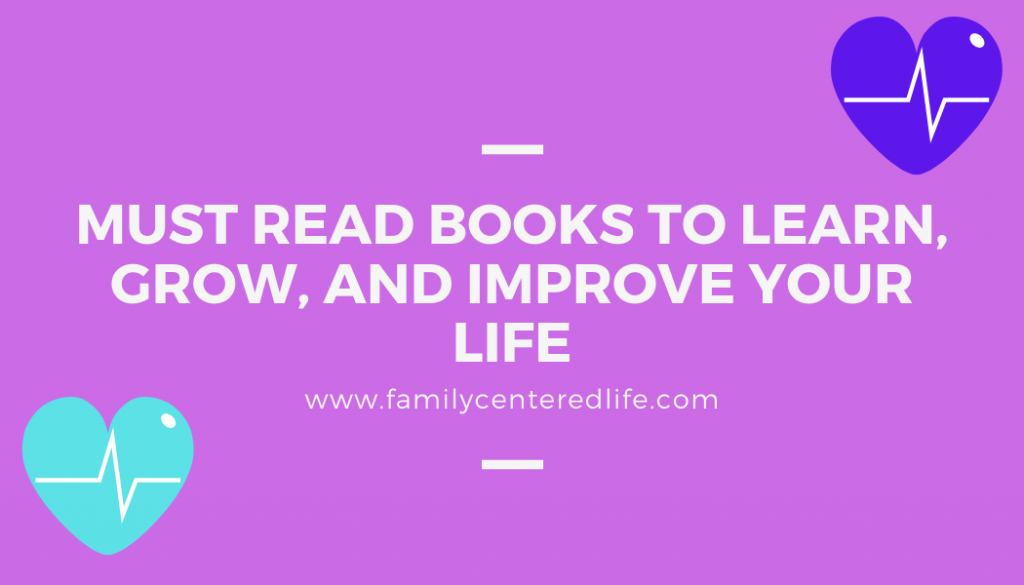

Essential Oils
Many people also find the use of essential oils to be beneficial to help with mood and to decrease stress.
My clients seem to have the best results with peppermint and orange scents.


Essential oils can be applied directly to the skin, such as wrists, as long as no allergies are present. The oils can also be placed in diffusers to help spread the aroma around the room. I enjoy using my diffuser in my office with peppermint in it!


Bonus…
Treat Yourself Periodically
Additional stress relief may come in the form of:
- Taking a weekend trip to relax
- Going on a vacation to spend more time with (or away from) your family
- Making a scrapbook to remember the positives in your life
- Decorating for an upcoming holiday you enjoy
- Spending one-on-one time with one of your children
- Going on a date with your spouse or significant other
- And the list can go on forever! The idea is doing something you enjoy and/or spending time with the people you enjoy!

Check out more self-care tips here!
One way that makes these personal treats even better is finding a way to spend less money doing the things you enjoy! Check out the following post listing a wide variety of money-saving ideas to better yourself and your life!
Also, check out my parenting book with tips and tricks for making parenting easier and more enjoyable!

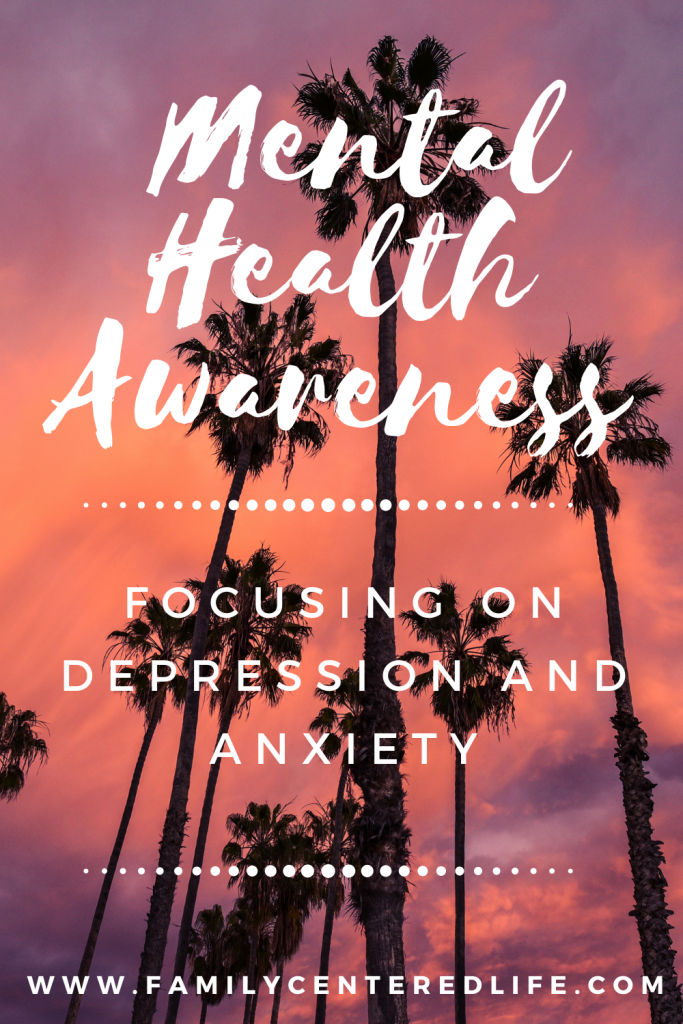
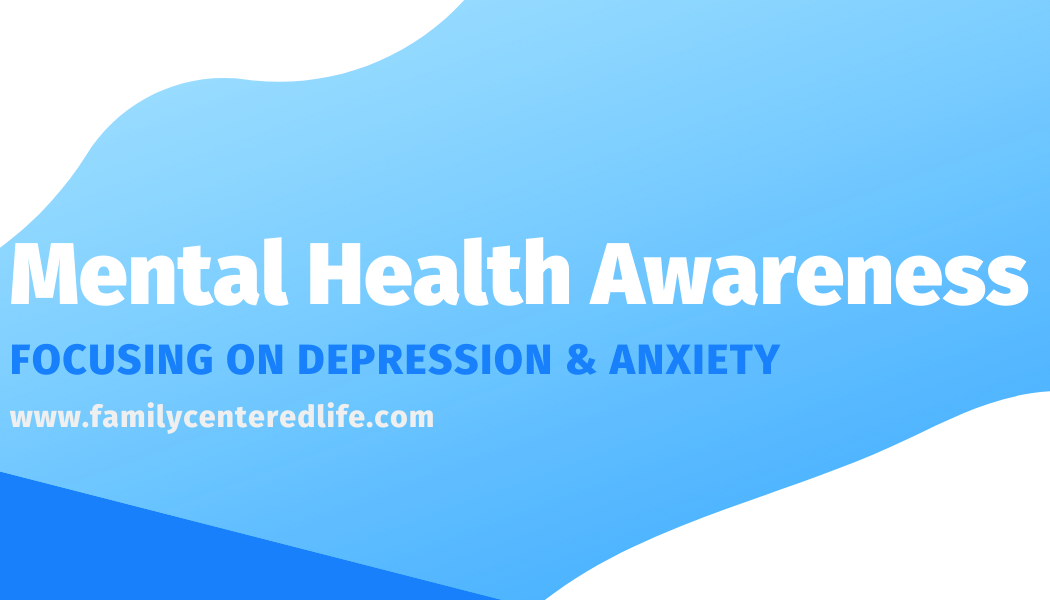
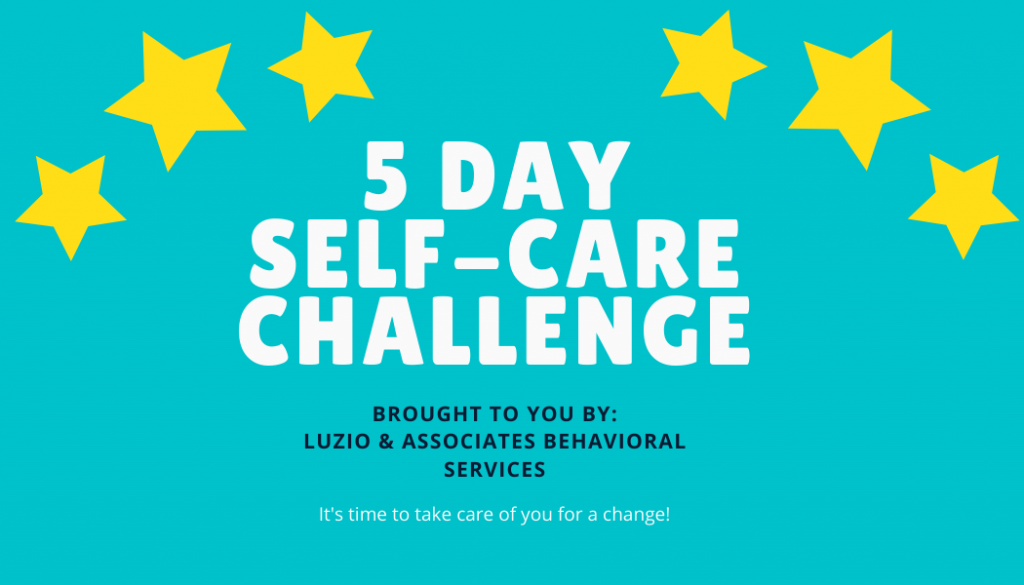
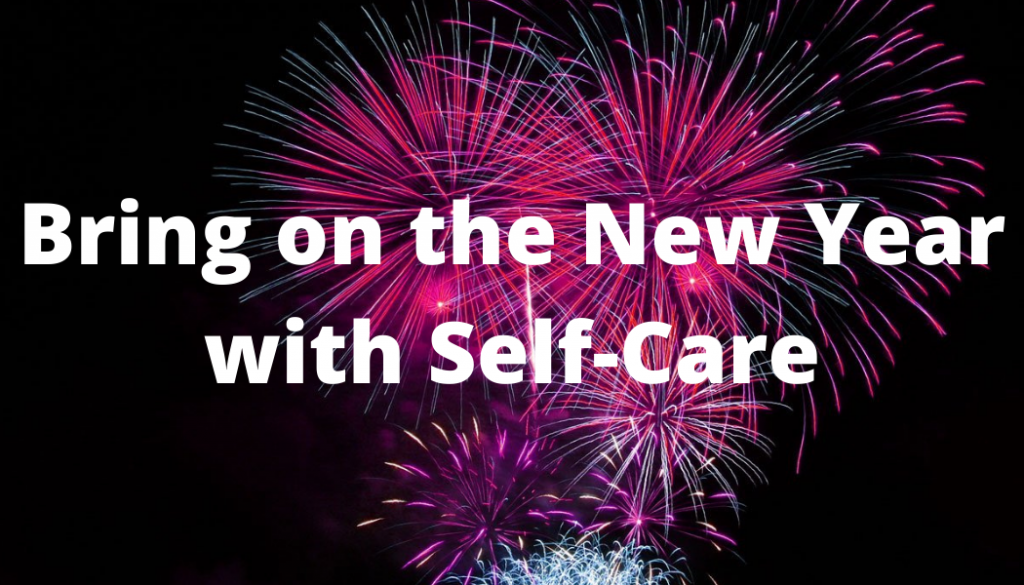

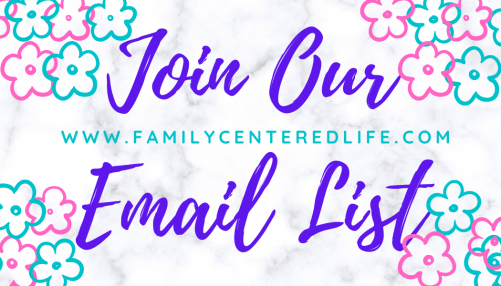


Great article! I never really considered scrapbooking to be therapeutic, but I guess it really is! I always make scrapbooks for all of our travels, and it is something I really enjoy… not to mention, its ME time! I definitely agree that a little time spent taking care of ourselves, can greatly improve our mental health. Depression and Anxiety can be debilitating.
Thank you for sharing. So important to keep this topic open.
This post is very information and relevant, especially during this time (2020 & winter). I love it!
Such a great in-depth article. I have dealt with both all my life and it has always been a battle. I believe that people truly need to be educated more and learn to recognize the signs. Thank you for sharing this information~
Wonderful post! Thank you for the helpful information. I’ve tried to make self care an important part of my weekly routine. It’s my weekly reboot!
It’s great to see people becoming more and more open about mental health! Anxiety and depression are so common that it is important to get the conversation going about it. Thanks for sharing these tips!
What a great post I’m sure this is very helpful to alot of people. I grew up being made to think my anxiety made me a weak person but over the years with more understanding of anxiety disorders this mentality has changed. What has helped me the most has been self care and nutrition as you also mentioned in this post!
So many people still hold those misconceptions. Perceptions are changing, but it’s a slow process.
This was a well designed post with some really beneficial information. You wrote it in such a way that is easily digestible. Mental Health is not something to ignore.
this is a critical topic that needs to be discussed regularly.
such a valuable post and I really learned so much.
thanks for sharing.
I’ve been depressed and have anixeity all my life. I’m now 41 and have Alopecia Univeralis. So in an effort to live healthier all around, I got off sugar and lowered my carbs and I feel amazing! I even have hair growing! This post is amazing, and remeinded me that I need to take better care of myself. Thank you for bringing awareness to this worldwide issue.
Excellent post with suggestions that truly do help. Stress really is the thief of joy. I’ve learned that food and thoughts and decisions do all play a part in relieving stress. And I love my self care Sundays!
I think that describes it perfectly! Thief of joy!
Very great article. I deal with family who suffer from anxiety which leads to negativity and it is very hard.
I am all about essential oils and diet first before pharmaceuticals! Great read!
This is great information. My husband’s good friend is living with us short term and my husband and I believe he is depressed. We are both very supportive to him and try to keep his spirits high but I believe he is afraid of change and to do what’s right by himself by not following the path his father believes it’s right for him. I wish I could show this to him but I’m afraid it would upset him further. Thank you for sharing this I know this has and will further help those who struggle with this in life.
I hope one day that he is willing to take time to care for himself. Maybe you could bring up blog conversation over dinner sometime and work this topic in with your husband’s help?? That way it would seem natural and less like you are pushing the info on him?? Either way….good luck!!
Such an important issue to discuss, especially right now! Thank you for sharing and the reminder to “treat myself”!
I think we all need that reminder some days!!
Many people think medication is always the answer. I appreciate that you spent time on other areas…eating right, self-care, environmental…thank you for giving so many suggestions for people to help themselves with their depression.
I agree. It can be helpful, but it’s often only one piece of the puzzle.
Gosh I love this post so much. As a sufferer of depression and anxiety, I totally agree that mental health isn’t talked about enough, treated seriously enough, or made accessible enough. Whenever I open up to people about it, I can tell they feel uncomfortable. But those who listen and are vulnerable back to me are the ones I bond the most with. Because those of us who open up about it know the true value in the healing that takes place once we acknowledge the work that needs to be done…. because in my case, it totally takes work to cope with anxiety and battle depression. Therapy has been so helpful for me. Thanks for the enlightening and motivating post. I pinned your book recommendations for anxiety too!
I’m so glad it was so helpful! I definitely think “battle” is the correct word for it. For many people, it is a battle that lasts for years or a lifetime. I’m glad you are taking care of yourself!
Thanks for these beneficial reminders! It took me awhile to realize for myself how much food effects my mood. I can definitely see how food and other stressors can create depression or make it better.
It is definitely easy to forget how important nutrition is…especially in our busy society!
I love that you talked about what WE can do to make ourselves feel better. I know it’s not a perfect fix, but what goes into our bodies/minds is SO important!
It’s one step to making our symptoms more manageable!
I love the self care aspect! These are great suggestions to take a break, get help, and take control.
Me too, but it’s often the forgotten part of life!
Such good timing on this post. I think a lot of us have been experiencing some degree of depression and anxiety in the last few months.
yes. I work in mental health and COVID has definitely increased the experience of depression and anxiety. Plus, with the holidays coming shortly, the depressive and anxious symptoms often increase even more.
I am glad people are becoming more open about talking about anxiety and depression!
Slowly, but definitely!
I agree, so many reasons and degrees of depression. And not a one size fits all treatment, so fortunately, there are options.
Yes. No one cause and no one treatment! Our agency makes sure to meet each person’s individual needs and I love that about our agency!
Recently, I have seen folks remedying this issue with mineral supplementation. I can take a while to resolve and figure out the needs of the person but it is so amazing. My hope is that people will start to recognize this as an option as well as medications.
Yes. Essential oils and massage are other good non-medical ways to deal with depressive and anxious symptoms!
I think depression is one of the most over looked diseases. I had some post partum depression, and there should be no shame in admitting that. Thank you for your take on it and your suggestions to help get better!
Many people hide their symptoms due to fear of what others think and this only makes it worse.
What a great helpful tips for mental awareness. I have panic attacks and I think due to a lot of traumatic experienced growing up. What saves me is always being positive but it attacks when I am more stress. Thank you for this one.
Hopefully, you’ve been able to get some help dealing with all of this through the years. It’s definitely common that symptoms increase as stress increases.
I think those negative thought patterns are a critical factor. Thank you for sharing such important information.
Negative thought patterns are often the most difficult to manage.
These are all so important, especially self care. Thank you for this
Yes. It is often overlooked!
This is such good information. We need to get rid of the “bad” stigma that comes with mental health. It’s always ok to ask for help, and people need to know and feel that it is ok!
It’s slowly getting better, especially with younger generations.
Very helpful post! I know so many who are struggling with anxiety and depression. It’s scary how common it is. One of my health professionals told me many people have undiagnosed Lyme disease that can contribute to these issues as well.
Yes. There are many health issues that can present as depression or anxiety or increase those symptoms if you already experience them!
Fabulous post on two very important topics and very common conditions. Thank you!
thanks!